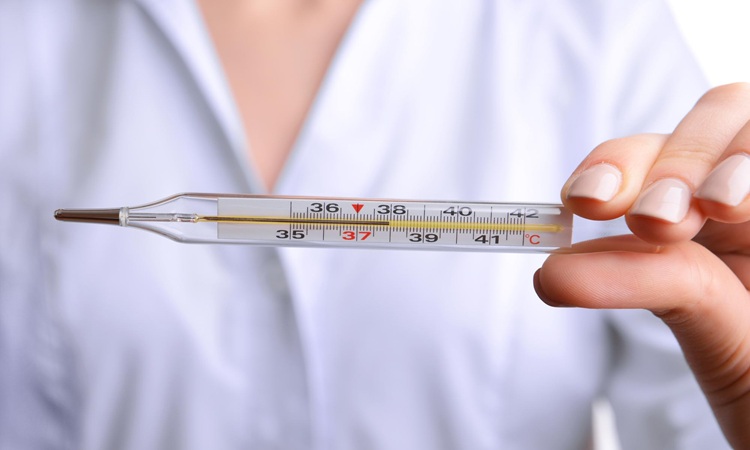What Is the Normal Body Temperature for Adults and Kids?
2025-11-10 / RG STONE HOSPITAL / Indian Health Care System

Body temperature is one of the most fundamental vital signs that healthcare professionals monitor to assess our health. At RG Hospitals, we frequently encounter questions about what constitutes a "normal" temperature, and the answer might surprise you. Understanding normal body temperature ranges can help you better monitor your family's health and know when to seek medical attention.
The Myth of 98.6°F
For generations, we've been taught that 98.6°F (37°C) is the standard normal body temperature. However, modern medical research has revealed that this number is more of a guideline than an absolute rule. The concept originated from German physician Carl Wunderlich's research in the 19th century, but contemporary studies show that normal body temperature actually varies considerably from person to person and throughout the day.
Normal Temperature Ranges for Adults
For healthy adults, the normal body temperature range typically falls between 97°F to 99°F (36.1°C to 37.2°C) when measured orally. However, this can vary based on several factors:
Time of Day: Your body temperature naturally fluctuates throughout the day, typically being lowest in the early morning and highest in the late afternoon or evening. This variation can be as much as one degree Fahrenheit.
Measurement Method: Where you take the temperature matters significantly. Oral temperatures are the standard reference point, but rectal temperatures tend to run about 0.5°F to 1°F higher, while armpit (axillary) temperatures typically measure 0.5°F to 1°F lower.
Individual Variation: Age, gender, physical activity, food and fluid intake, and even menstrual cycle phases in women can influence body temperature. Some people naturally run slightly warmer or cooler than others.
Normal Temperature Ranges for Children
Children's body temperature ranges are similar to adults, but there are some important differences to note:
Infants and Toddlers (0-2 years): Normal range is typically 97.5°F to 99.5°F (36.4°C to 37.5°C). Newborns may have slightly higher temperatures as their bodies are still developing temperature regulation.
Children (3-10 years): The normal range is generally 97.0°F to 99.0°F (36.1°C to 37.2°C), similar to adults.
Teenagers: By adolescence, temperature ranges align closely with adult norms.
For infants under three months, any rectal temperature of 100.4°F (38°C) or higher requires immediate medical attention, as fever in very young babies can indicate serious infection.
When to Be Concerned About Fever
A fever is generally defined as a body temperature above 100.4°F (38°C). While fever itself isn't an illness, it's a symptom that your body is fighting an infection or dealing with another medical condition. At RG Hospitals, we recommend seeking medical care when:
-
An infant under 3 months has a rectal temperature of 100.4°F or higher
-
A child has a temperature above 102°F (38.9°C) that persists
-
An adult has a temperature above 103°F (39.4°C)
-
Fever is accompanied by severe symptoms like difficulty breathing, chest pain, confusion, or seizures
-
Fever persists for more than three days despite treatment
Best Practices for Taking Temperature
To get accurate readings, RG Hospitals recommends:
Choose the Right Thermometer: Digital thermometers are reliable and safe for all ages. Avoid mercury thermometers due to safety concerns.
Select the Appropriate Method: For infants, rectal temperatures are most accurate. For young children, oral or temporal artery (forehead) measurements work well. Adults can use oral or temporal artery thermometers.
Follow Proper Technique: Wait 15-30 minutes after eating, drinking, or exercising before taking an oral temperature. Ensure the thermometer is clean and properly positioned.
Keep a Record: When monitoring illness, track temperatures along with the time of day and any symptoms to provide valuable information to your healthcare provider.
Conclusion
Understanding that normal body temperature exists as a range rather than a single number helps you make informed decisions about your family's health. While 98.6°F remains a useful reference point, remember that individual variation is normal and expected.
At RG Hospitals, our experienced medical team is always available to help you interpret temperature readings and determine when medical attention is necessary. Don't hesitate to reach out if you have concerns about your or your child's temperature, especially when accompanied by other worrying symptoms. Your health and peace of mind are our top priorities.
Categories
Hernia Repair
Appendicitis
Piles
Urological Treatment
Hernia treatment
Enlarged Prostate (BPH)
Gall Bladder Stone
Urinary / Kidney Stone
Vitamins
Indian Health Care System
Exercise
Obesity
Female Urinary Incontinence
Single Incision Laparoscopic Surgery (SILS)
Kidney Cancer
Bladder Cancer
Ovarian cancer
Nephrology
Bariatric Surgery
Kidney Function Test
Female Urology
Radiation Therapy
Alcoholic Fatty Liver
Liver disease
Gastroenterology
Kidney Disease
Nutrition & Health
Lung Cancer

